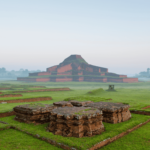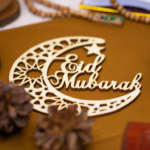Bangladesh is a country full of diversification,colors, age-old traditions, and spectacular celebrations. Whether you’re a culture enthusiast or a traveler looking for authentic experiences, and cultural feel, the festivals in Bangladesh might be attractive to you! In a year, the country’s cultural calendar is packed with incredible events that showcase the diversity, history, and spirit of its people and its real picture. From the lively Pohela Boishakh to the spiritually significant Eid celebrations, Durga Puja, each festival offers a unique glimpse into the heart of Bangladesh. So, if you’re planning a trip, mark your calendar for these top 10 cultural festivals you simply can’t afford to miss!
Pohela Boishakh (Bengali New Year)
- Date: April 14, 2024
Pohela Boishakh, the Bengali New Year, is one of the most important and widely celebrated festivals in Bangladesh. It marks the first day of the Bengali calendar, and its celebrations are nothing short of grand! The streets of Dhaka, particularly Ramna Park, come alive with processions, traditional Bengali music, and cultural performances. The highlight of the day is the Mangal Shobhajatra procession, recognized by UNESCO as an Intangible Cultural Heritage. With everyone dressed in red and white, Pohela Boishakh offers a fresh start and is filled with joy, food, and cultural pride.
Eid-ul-Fitr
- Date: April/May 2024 (based on moon sighting)
Eid-ul-Fitr marks the end of Ramadan, the Islamic holy month of fasting. Celebrated across Bangladesh, waidley, also it’s a time of joy, charity, and communal harmony. Families come together for large feasts, and it’s customary to donate food or money to those in need before the festival. In Dhaka, you’ll find the city comes to life with beautiful decorations, special markets, and prayers at mosques, homes as well. Traditional foods like semai (sweet vermicelli) are a must-try during this festival. If you want to enjoy the generosity and warmth of Bangladeshi hospitality, this is the perfect time to visit!
Eid-ul-Adha
- Date: June,
Also known as the Festival of Sacrifice, the Religious view of Eid-ul-Adha commemorates the willingness of Prophet Ibrahim (Abraham) to sacrifice his son as an act of obedience to God. Across Bangladesh, families sacrifice animals—typically cows, goats, or sheep—and distribute the meat to family, friends, and the poor in society. The festival is celebrated with communal prayers, and acts of charity. In cities like Dhaka, the streets are bustling with life, and it’s a great opportunity to witness how deeply ingrained the spirit of giving is in Bangladeshi culture.
Eid A Miladunnobi (S.)
- Eid A Miladunnobi S. also known as the birthday of Prophet Muhammad (PBUH), is a highly significant Islamic celebration. Historically, the day marks the Prophet’s birth in the year 570 CE. In Bangladesh, this occasion has taken on special meaning, reflecting the deep religious devotion of its citizens. Over the centuries, the celebration has evolved into a day of prayer, reflection, and community bonding. Interestingly, Bangladesh’s observance of this day is heavily rooted in its Sufi traditions, which add a unique flavor to the celebrations. Globally, the way this day is observed can differ, but in Bangladesh, it remains one of the most anticipated Islamic holidays of the year.
Durga Puja
- Date: October 2024 (dates vary based on the lunar calendar)
Durga Puja is the most important festival for Bengali Hindus and is celebrated with great fervor across Bangladesh, especially in Dhaka’s Shankhari Bazaar. It honors the goddess Durga’s victory over the buffalo demon Mahishasura, symbolizing the triumph of good over evil. During the festival, intricately decorated statues of the goddess are displayed in homes and public spaces. The final day, known as Vijaya Dashami, includes processions where the statues are taken to rivers to be immersed. It’s a vibrant, colorful festival full of devotional music, dancing, and traditional food offerings like khichuri and luchi.
Nobanno Utshob (Harvest Festival)
Date: In the month of November,
Nobanno, meaning “new rice,” is an agricultural festival that celebrates the first rice harvest of the year. This rural celebration is steeped in tradition, particularly in villages across Bangladesh. Behind the festival, the story is that the celebration of their new harvesting crops is being welcomed through celebration. Families come together to cook rice-based dishes and enjoy cultural performances, folk songs, through traditional dance and other customary stuff.. If you visit during Nobanno, you’ll get a true taste of Bangladesh’s agricultural roots and can experience life in the countryside, and rural vibe. It’s a great time to enjoy some of the country’s delicious and diverse rice dishes!
Buddha Purnima
- Date: In May,
Buddha Purnima is the most sacred festival for Buddhists, celebrating the birth, enlightenment, and death of Gautama Buddha. It is celebrated with great reverence, especially in the Chittagong Hill Tracts, where the country’s largest Buddhist communities live. Monasteries and temples are decorated, and devotees offer food, flowers, and prayers. Special processions are also held, and monks give teachings on the life and philosophy of the Buddha, and the way of life. This festival offers a peaceful and reflective experience of spiritual devotion.Their motto is” Wish to be happy all creatures”.
Shakrain Festival (Kite Festival)
- Date:In January,
The Shakrain Festival is one of the most visually stunning events in Bangladesh, celebrated mainly in Old Dhaka. It marks the end of the Bengali month of Poush, and the skies are filled with colorful kites. The day begins with kite-flying competitions, and by evening, the city rooftops light up with fireworks and lanterns. This festival also includes rooftop parties with music, food, and cultural performances. Shakrain is an ideal time to experience Dhaka’s vibrant urban energy and local traditions.
Muharram (Ashura)
- Date: In July,
Muharram is one of the most significant Islamic events, particularly observed by Shia Muslims in Bangladesh. Religious significance- It commemorates the martyrdom of Imam Hussain, the grandson of Prophet Muhammad, in the Battle of Karbala. Processions and acts of mourning take place, especially in Old Dhaka’s Hussaini Dalan area. Participants carry flags, chant elegies, and some even engage in acts of self-flagellation as a symbolic expression of grief. For travelers, it offers a profound insight into the religious and historical significance of Muharram in the Islamic world.
Lalon Shah Mela
- Date:In October,
Lalon Shah Mela is a festival that celebrates the life and philosophy of Lalon Shah, a mystic saint and poet revered by Bangladesh’s Baul community. The festival takes place in Kushtia, at Lalon’s shrine, and attracts Baul musicians and followers from all over the country. The festival is a beautiful mix of music, spirituality, and devotion as well as the way of life. Baul songs, which speak of universal love and spirituality, are performed throughout the event. It’s a perfect festival for travelers interested in Bangladesh’s rich musical and spiritual traditions.
Bangladesh’s cultural festivals are a reflection of the country’s rich heritage and diverse traditions. Each festival offers a unique opportunity to experience the vibrant spirit of Bangladeshi culture, whether through traditional ceremonies, colorful parades, or community feasts. As you plan your travels in 2024, consider timing your visit to coincide with these festivals to truly immerse yourself in the cultural tapestry of Bangladesh. Share your own festival experiences or any other celebrations you’ve enjoyed in the comments below, and let’s keep the conversation going about the vibrant cultural landscape of Bangladesh!







